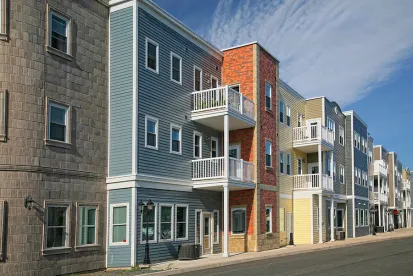Florida’s new Miya’s Law, Fla. Stat. 83.515, imposes background screening and other specific requirements on landlords regarding their employees who work in apartments that can be classified as “nontransient” or “transient.”
Miya’s Law is named after Miya Marcano, who was killed in her apartment by a maintenance worker having access to her apartment.
Coverage
A nontransient apartment building or complex of buildings advertises at least 75 percent of its units to renters for stays longer than a month (i.e., a typical apartment building). See Chapter 509.242, Florida Statutes. A transient apartment building or building complex advertises more than 25 percent of its units to tenants for stays less than a month. An apartment building or complex must actually rent out its units for the shorter duration at least four times per year — not merely advertise as such — to qualify as transient.
Requirements
Miya’s Law requires landlords of nontransient and transient apartment buildings to perform background screenings on employees as a condition of employment.
Effective July 1, 2022, the background screening must be performed in accordance with the federal Fair Credit Reporting Act (and applicable state law, if the candidate resides outside of Florida) and must include a search of all criminal, sex offender, and sexual predator registries from all 50 states and Washington, D.C.
The law allows a landlord to disqualify an applicant who has: (i) been convicted of; (ii) been found guilty of; or (iii) pled guilty/nolo contendre to a crime involving the disregard for the safety of others that is a felony or first-degree misdemeanor in Florida.
The law also allows a landlord to disqualify applicants with any of these types of judgments if the crime was committed in another state but would be a felony or first-degree misdemeanor if committed in Florida.
Lastly, landlords could disqualify applicants if the conviction involved violence, such as murder, sexual battery, robbery, carjacking, home-invasion robbery, and stalking.
In addition to requiring the background screenings, Miya’s Law also mandates that landlords maintain a log for all keys for each unit and establish protocols for issuing, returning, and storing unit keys.
Every landlord must provide proof of either the background screenings or the key log procedures should Florida’s Division of Hotels and Restaurants request it.
Lodging, Food Service, Campgrounds
Miya’s Law also amends existing safety regulations for lodging, food service, and membership campgrounds, requiring those establishments to implement the same background screening process discussed above, effective January 1, 2023.
Other Changes
Covered property owners should be aware of two other changes not directly related to employment. First, a landlord may enter a dwelling to make repairs only after providing reasonable notice prior to entry: at least 24 hours, which Miya’s Law increased from 12 hours.
Second, any operator of a public lodging establishment is prohibited from charging by the hour for accommodations it must make for its guests. This does not include any late checkout fees. The prohibition went into effect when Governor Ron DeSantis signed Miya’s Law on June 27, 2022.
***
While Miya’s Law is Florida-specific, this new background check standard is instructive to employers grappling with how to make legal and business-appropriate post-offer decisions relating to someone’s criminal conviction in today’s highly sensitive environment. Often, the challenge is making an individualized assessment, when appropriate or required, considering all of the job-related factors and business necessity prior to denying employment.





 />i
/>i

